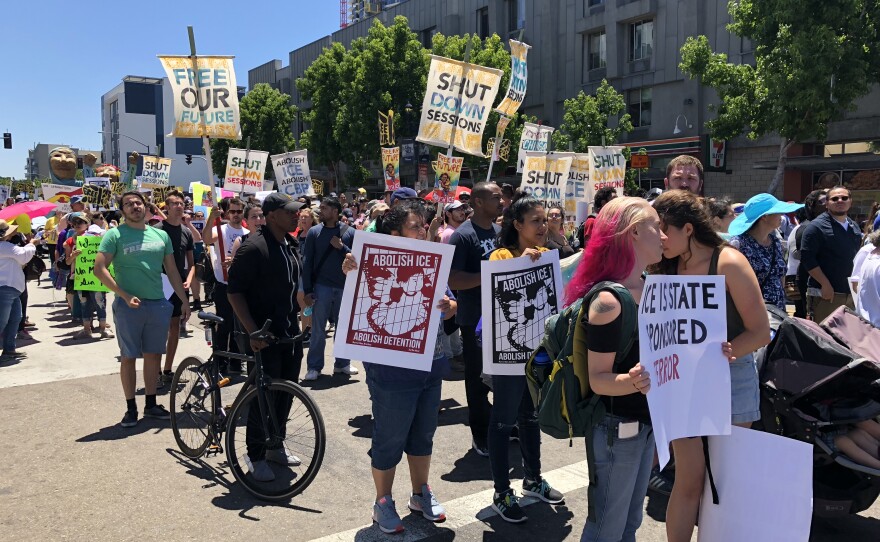On Tuesday, President Biden issued an executive order, charging the Department of Homeland Security to launch an interagency task force. That task force will attempt to find families that still remain apart, after they were separated along the border in 2018.
“I’m not making new law, I’m eliminating bad policy,” Biden said shortly before signing the executive order.
Over 5,000 families were first separated in 2018, under the Trump Administration’s “Zero Tolerance” policy, which instructed federal prosecutors, including those in San Diego, to charge the parents with federal crimes for crossing the border. In doing so, Border Patrol separated them from their children.
“We’re going to work to undo the national shame of the previous administration that literally, not figuratively, ripped children from their families, their mothers and fathers at the border, and with no plan, none whatsoever to reunify them,” Biden said on Tuesday.
Shortly after a federal judge issued a stop to the program, the vast majority of families were quickly reunited. Advocacy groups soon began to work to reunify the remaining families.
Erika Pinheiro is an attorney with Al Otro Lado, an organization that works with asylum-seekers in San Diego.
“Between August and December of 2018, Al Otro Lado sent staff and contract attorneys and volunteers to Central America on five separate trips to Honduras, El Salvador, and Guatemala, to meet with parents in person and prepare for their return,” Pinheiro told KPBS.
But that work, done without any financial assistance from the government, has proved difficult for advocacy groups looking to reunite the families.
The government did not provide a full list of parents who were separated, and Pinheiro says that only 36 parents who were deported made it back to the U.S., after strict limitations were placed on who could reunify.
Now several years have passed since the separations, making the job even harder for those looking to reunify them.
“Creating a task force doesn’t mean you're reunifying families, it means you’re going to have a lot of meetings about what you’re going to do to reunify families,” said Pinheiro.
RELATED: How Advocates Pushed The Biden Administration To Take Immediate Action On Immigration
In discussing the executive order, Biden Administration officials have said that not all families separated will be able to reunify in the U.S., and whether they can come to the U.S. will be done on a case-by-case basis.
“The government inflicted such an egregious harm on these families that they owe them some sort of status in the United States, independent of asylum,” Pinheiro said.
The two other executive orders issued on Tuesday addressed the root causes of migration from Central America, and the treatment of asylum-seekers when they arrive at the southwest border.
Neither of those take any immediate action. Earlier in the day, a new DHS secretary Alejandro Mayorkas, was confirmed by the Senate. It will be up to him to act on the orders, including dealing with the thousands of asylum-seekers who have been stuck in Tijuana for over a year.








